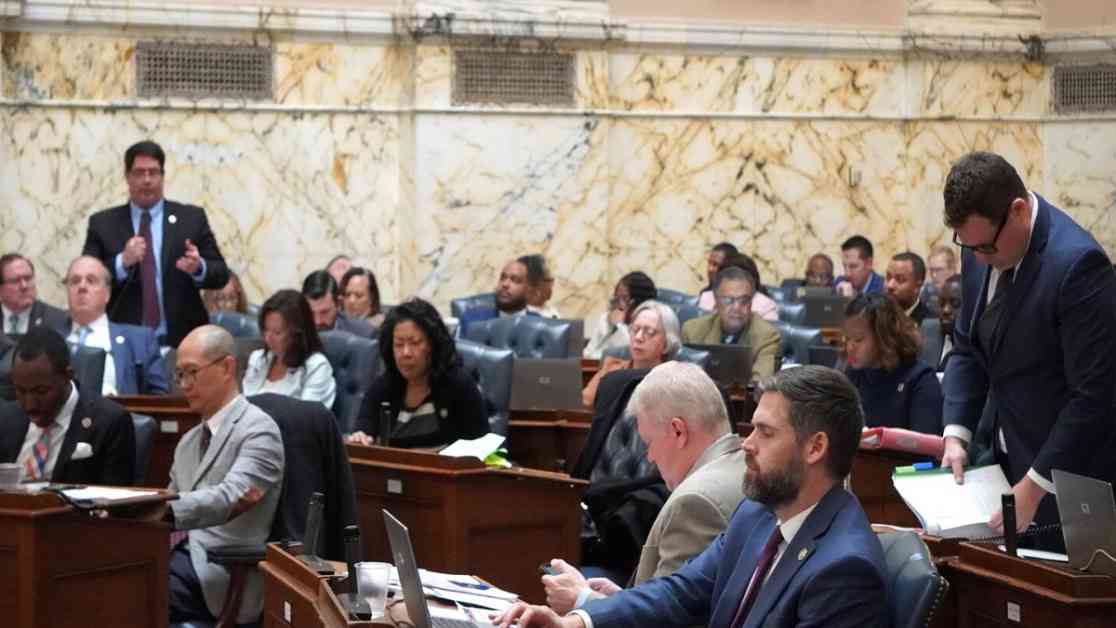House Democrats faced off against House Republicans in a heated battle over Maryland’s comprehensive education reform plan, the Blueprint for Maryland’s Future. Despite Governor Wes Moore’s proposed cuts due to a projected $3 billion budget shortfall, the Appropriations and Ways and Means House committees rejected these cuts, prompting Republican amendments aligned with the Democratic governor’s vision.
Del. Christopher Adams (R-Middle Shore) stepped in with a friendly Eastern Shore Republican amendment aimed at reverting the bill to the governor’s original version. This included a four-year pause in the expansion of teachers’ collaborative time, a freeze in funding for community schools in low-income areas, and a reduction in per-pupil funding growth. However, after lively debates, Adams’ amendment was voted down 98-37, leaving the bill intact.
Following Adams, Del. LaToya Nkongolo (R-Anne Arundel) proposed an amendment to allow school systems to seek waivers for using compensatory education funds to reduce class sizes beyond 30 students. While she argued it would benefit all students, Chair of the Appropriations Committee, Del. Ben Barnes (D-Prince George’s and Anne Arundel), voiced concerns about diverting funds meant for lower-income students. Ultimately, Nkongolo’s amendment was rejected 95-40, maintaining the original bill’s provisions.
Del. Mark Fisher (R-Calvert) then introduced an amendment to permit students in one-star schools to transfer funds to a new school of their choice, including military boarding schools for those deemed “violent” or “disruptive.” Fisher emphasized the importance of school choice for struggling students, but Del. Vanessa Atterbeary (D-Howard) argued against further divestment from public schools, citing increased inequities and division among students. After a lengthy debate, Fisher’s amendment was defeated 97-39.
The House is set to vote on the bill for final approval, pending Senate consideration. Senators, aware of looming budget challenges exacerbated by funding cuts, have expressed alignment with the Moore administration’s version of the plan. Senate committees, Budget and Taxation and Education, Energy, and Environment, participated in a joint public hearing on the bill, with Sen. Guy Guzzone (D-Howard) noting the possibility of a Senate vote on their version soon.
As the legislative process unfolds, stakeholders on both sides are gearing up for further deliberations and potential compromises. The fate of Maryland’s education reform plan hangs in the balance as lawmakers navigate the complexities of budget constraints, educational equity, and policy priorities. Stay tuned for more updates on this evolving story that impacts the future of education in Maryland.
















